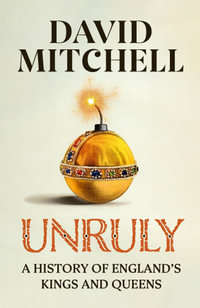The clever peasant Arnaud du Tilh had almost persuaded the learned judges at the Parlement of Toulouse when, on a summer's day in 1560, a man swaggered into the court on a wooden leg, denounced Arnaud, and reestablished his claim to the identity, property, and wife of Martin Guerre. The astonishing case captured the imagination of the continent. Told and retold over the centuries, the story of Martin Guerre became a legend, still remembered in the Pyrenean village where the impostor was executed more than 400 years ago.
Now a noted historian, who served as consultant for a new French film on Martin Guerre, has searched archives and lawbooks to add new dimensions to a tale already abundant in mysteries: we are led to ponder how a common man could become an impostor in the sixteenth century, why Bertrande de Rols, an honorable peasant woman, would accept such a man as her husband, and why lawyers, poets, and men of letters like Montaigne became so fascinated with the episode.
Natalie Zemon Davis reconstructs the lives of ordinary people, in a sparkling way that reveals the hidden attachments and sensibilities of nonliterate sixteenth-century villagers. Here we see men and women trying to fashion their identities within a world of traditional ideas about property and family and of changing ideas about religion. We learn what happens when common people get involved in the workings of the criminal courts in the ancien regime, and how judges struggle to decide who a man was in the days before fingerprints and photographs. We sense the secret affinity between the eloquent men of law and the honey-tongued village impostor, a rare identification across class lines.
Deftly written to please both the general public and specialists, The Return of Martin Guerre will interest those who want to know more about ordinary families and especially women of the past, and about the creation of literary legends. It is also a remarkable psychological narrative about where self-fashioning stops and lying begins.
Industry Reviews
A fascinating reconstruction of a famous incident of impostorship and love in sixteenth-century rural France. Davis delicately deploys historical fact to suggest what is singular about the modern individual. -- Todd Gitlin The Nation In her intelligent and subtle analysis, the story gives an inside view of an otherwise little-known world, the private lives of peasants...Natalie Davis has also collaborated on an excellent film of the story (produced in France) as well as writing this book...About Martin Guerre, I would say, without hesitation, the movie was great, but Natalie Davis's book is even greater. -- Emmanuel Le Roy Ladurie New York Review of Books Davis combines a veteran researcher's expertise with a lay reader's curiosity and an easygoing style. She draws on sophisticated...work in land tenure, legal rights, and demography to reinterpret a 'prodigious history' among the French peasantry...Davis's book combines ingredients essential to good social history--painstaking historical research and a vividly empathetic imagination. The result of this happy combination is that character emerges in context...Davis's book balances possibility and constraint, character and situation. It puts people back into history but doesn't take the social and political forces out of it. The universal is there in particular, and it makes you think not only about their choices then, but about ours now. -- Pat Aufderheide Voice Literary Supplement A fascinating anecdote, with enough colorful background, psychological complexity, and unsolved mysteries to delight any intelligent audience. Kirkus Reviews Natalie Zemon Davis...has scoured the legal and notarial records of south-western France to recreate for the reader not merely a highly entertaining story but a vivid picture of the world which fashioned its principal characters. Her observations on property rights, inheritance, customs, family relationships and the mechanisms of the law are welded together by a rare blend of historical craft and imagination...Professor Davis's ability to combine lively narrative, wit, historical reflection and psychological analysis will ensure for this book a wide audience. It is truly captivating story with which to pass a rainy weekend; it is also a brilliantly professional reconstruction of the rural world of sixteenth-century France, which will both stimulate and inform for many years to come. -- David Parker Times Literary Supplement The fullest account to date of this extraordinary tale. Davis has constructed a Fine piece of social history, a look into the lives of 16th-century peasants who left no records because they could neither read nor write. -- Jean Strouse Newsweek Davis combines a veteran researcher's expertise with a lay reader's curiosity and an easygoing style... Davis's book balances possibility and constraint, character and situation. It puts people back into history but doesn't take the social and political forces out of it -- Pat Aufderheide Village Voice
























